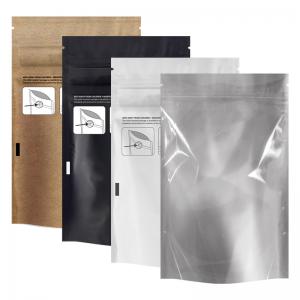A group of U.S. Senate and House Democrats sent a letter to the Treasury Department asking for a policy change where the federal government unfairly penalizes state-legal marijuana businesses convicted of marijuana-related crimes by restricting their access to loans and other banking tools.

The group of 20 lawmakers said in a letter Tuesday that 2014 guidance from the Treasury Department's Financial Crimes Enforcement Network (FCEEN) that placed "red flags" on marijuana businesses hurt those businesses' access to banking services or loans. Colorado lawmakers were not among the signatories.
The lawmakers said the warning from federal regulators unfairly restricts access to the fast-growing industry, which is legal in many states.
"Under this red flag guidance, a marijuana business owner with a marijuana criminal history may be allowed to participate in the state licensing program on paper, but may not actually be able to obtain a bank loan to grow her business because she is considered a high-risk customer," the lawmakers wrote.
The letter reads, "The guidelines do a great disservice to businesses owned by people of color, who are more likely to be convicted of marijuana-related offenses, even though they are not as likely to be in violation of marijuana use laws.
Senators Elizabeth Warren (D) of Massachusetts, Jeff Merkley (D) of Oregon, Raphael Warnock (D) of Georgia and Rep. Earl Blumenauer (D) of Oregon, according to a release from Warren's office. Blumenauer (D) are leading the letter.
Other signatories include Senators Cory Booker (D) of New Jersey, Chris Van Hollen (D) of Maryland, Amy Klobuchar (D) and Tina Smith (D) of Minnesota, John Fetterman (R), and Rep. Val Hoyle (R) of Oregon.
They asked Treasury Secretary Janet Yellen and Andrea Gacki, director of the Financial Crimes Enforcement Network, to update the guide.
The updated guide should allow those who have been pardoned or convicted of a crime that is no longer considered a crime under the laws of their state to have full access to financial services without warning from the federal government, the lawmakers wrote.
Messages seeking comment from the Treasury Department and the Financial Crimes Enforcement Network were not returned Thursday.
Differences among advocates
Many states have begun decriminalizing or fully legalizing recreational use in recent years, and marijuana has grown into a multibillion-dollar industry, but access to banking services remains one of the challenges facing marijuana-related businesses.
Last year, 22 states collectively generated $3.8 billion in tax revenue from marijuana sales, according to the Marijuana Policy Project, an advocacy group. Recreational sales in Oregon alone amounted to about $1 billion a year.
But because the banking system is largely regulated by the federal government and marijuana is still illegal nationwide, it can be difficult for marijuana-related businesses to access banking services, such as small business loans.
This leaves would-be business owners without the necessary capital to start a business. Existing businesses may carry large amounts of cash, making them more vulnerable to theft or robbery.
But efforts to address only banking issues have divided marijuana reform advocates.
Booker, Wyden and Senate Majority Leader Chuck Schumer, D-N.Y., introduced a comprehensive marijuana reform bill last year that would fully legalize marijuana.
Booker and Warnock objected to bipartisan attempts to deal only with access to financial services, arguing that such reforms would favor large marijuana businesses and would be unfair to blacks and Latinos, most of whom are still suffering the consequences of marijuana-related convictions in states that have legalized marijuana.
"My fear is that if we pass this legislation, if we greenlight this new industry, if we collect fees and make profits from it without helping these communities, we're only going to make these people more comfortable," Warnock said at a September hearing on the Marijuana Banking Law Reform Act.
"I don't see any historical evidence," he continued, "that when we do this, we go back in time and get help for those who have been left behind." I don't believe in trickle-down economics or trickle-down justice.
The Senate Banking Committee passed the marijuana banking bill on September 28th on a bipartisan 14 to 9 vote. The bill has yet to receive an Assembly vote.
A spokesman for Warnock did not return messages Thursday seeking comment on the Treasury Department letter.
Booker and Schumer have also opposed previous banking reform efforts, but Booker said the addition of grants to states to help decriminalize marijuana to this year's version of the bill he co-sponsored makes it worthy of support.
A spokesman for Booker did not return messages seeking comment Thursday.
"I am grateful to my colleagues for working with me to ensure that our bill can be supported.


 English
English français
français Deutsch
Deutsch русский
русский italiano
italiano español
español português
português Nederlands
Nederlands 日本語
日本語 한국의
한국의











 2023-11-17
2023-11-17

 Online service
Online service +86 15375471059
+86 15375471059

